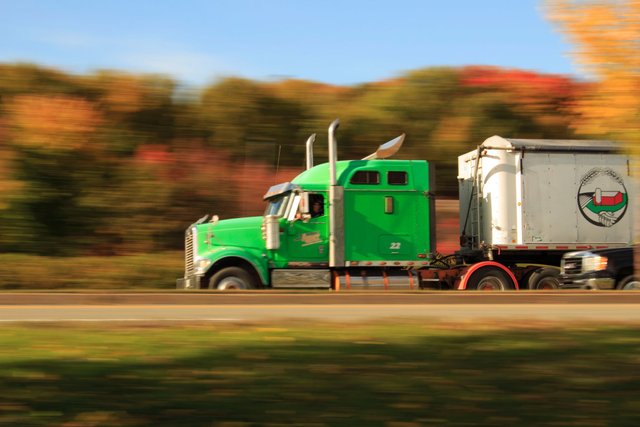Tech Update - Is Diesel Technology the Way Forward or Should We Only Focus on Electric Vehicles?
In recent news it appears that Houston has unveiled a plan to purchase the newest generation of diesel technology with funds from their Volkswagen settlement.
Cleaning up the air is important and it's Gov. Greg Abbott and the Texas Commission on Environmental Quality's mission to ensure the greatest number of Texans receive the greatest clean-air benefits for the available funds. Other cities and municipalities should probably follow Houston's example.
Overall, Texas is set to receive $209 million from the settlement established after automakers of Volkswagen, Audi and Porsche brands OK'd claims that it cheated U.S. vehicle emissions standards. Houston Mayor Sylvester Turner has requested $18 million to update the city's truck fleet with 71 new diesel trucks and 14 compressed natural gas trucks.
The newest generation of diesel technology, or clean diesel, offers cities proven and available technologies that can be put into service immediately. Strategies that advocate for an all-electric approach sacrifice the clean-air benefits available today in favor of expensive and potentially unavailable technologies that, coupled with delay, will leave the air in many Texas communities dirtier for years to come.
I'm still not completely sold on the clean air properties of diesel myself but I'm all for modernization of older machinery assuming it does actually reduce emissions. This seems to be sort of a bad compromise but something is better than nothing right?
Often the largest sources of emissions of oxides of nitrogen, a smog-forming compound, are heavy-duty vehicles and equipment. The vast majority of these vehicles are powered by diesel, but many do not use the latest, cleanest diesel technologies. In Texas, most NOx emissions come from mobile sources.
Clean diesel technologies are certainly better than unclean alternatives but how clean can diesel truly be? I know that electric also has its problems at the moment and it may be several years until we see a complete modernization towards completely electric vehicles on the road. At this point they may still be too expensive but I believe we are making a lot of progress.
According to my source, Texas already has one of the highest clean-diesel truck adoption rates in the country.
According to a recent analysis of clean diesel adoption in Class 3-8 trucks nationwide, Texas ranks third among the 50 states. However, this still means that only 35.6 percent of the Texas Class 3-8 trucking fleet uses the latest, cleanest, near-zero diesel technology. Houston's proposal rightly calls for projects to directly target these vehicles.
A well-designed plan from TCEQ for reducing emissions and cleaning the air prioritizes the replacement of as many of these older, high-emitting vehicles and equipment as possible. In this scenario, clean diesel technology is a trusted partner, delivering more emission reductions on a dollar-per-pound basis than other alternatives, including all-electric options.
This is potentially true but I would like to consider the possibility that the diesel industry has spent a lot of money lobbying politicians to push this agenda. I don't have hard numbers to refute that new diesel technologies may deliver more emission reductions on a dollar-per-pound basis but I still remain skeptical that this is the case.
Here's an example: According to the U.S. Environmental Protection Agency's National Port Strategy Assessment, replacing one older Class 8 port truck with a new clean diesel model can eliminate 1,282 pounds of NOx for about $110,000. Replacing that same truck with a battery electric model could reduce NOx by 1,326 pounds but at a price double that of a clean diesel truck.
Apparently, when talking about a fixed investment, more older and higher-emitting trucks can be replaced with a clean diesel model faster than with an investment in all-electric technology and infrastructure. According to this source, investing in the all-electric option would actually keep more older and higher-emitting trucks on the road.
I'm not sure what to make about all this? What do you guys think about diesel? Should we be moving towards clean diesel technologies or trying to get away from them through the adoption of cleaner alternatives even if it costs more for producers to provide and those costs are passed on to consumers?
Thanks for reading!
Source:
http://www.houstonchronicle.com

I am a technology writer and marketing advisor for the ADSactly Society:

I'm proud to be a supporter, patron and builder of the @MinnowBooster @Steemvoter and @BuildTeam projects:

https://www.minnowbooster.com/vote-selling/?ref=1611



While I think diesel is an improvement over gasoline. I'm going to the side of electrical.
Since electrical power can be obtained with a variety of methods, making it a cleaner technology, plus we can actually with the technology we possess right now make electricity a renewable resource. We just need 12 million acres of solar panels, to power the United States for a year We just need 12 million acres of solar panels, to power the United but that would only make about 0.6% of the continental US land and that's with current technology with the efficiency of modern solar panels but if we wait a few years solar panels are going to get increasingly better to the point of being regarded as ridiculous to not live without them.
These are my thought I wanted to share, thanks for making the post, it is very interesting.
I agree with this feeling to side with electric. With the combination of electric and solar I really believe its a much cleaner and more sustainable solution going forward. But any step in the right direction is a step I will approve of.
Yes, I do agree, any step in a better direction it will be better than what are we are doing up to date. Thanks for responding! it is greatly appreciated.
@techblogger Though clean diesel technologies is a way better than unclean alternatives but am still in total support of electrical power generation. It's not a new thing again that the use of electrical power would be the best because of the variety of way it can be obtained. Solar energy production cannot be left out too.
I agree, it is definitely more sustainable when we zoom out and look at the big picture!